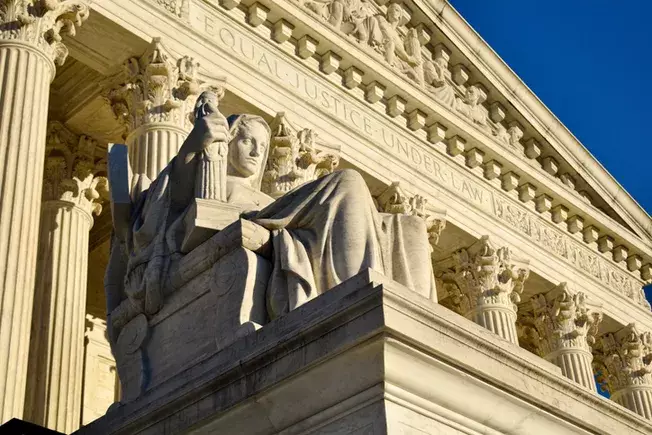As the deadline approaches, the fate of TikTok in the United States hangs in the balance. With just days remaining for the popular app to stave off a ban that could affect its 170 million American users, the situation is more precarious than ever. The looming threat is a result of the “Protecting Americans from Foreign Adversary Controlled Applications Act,” which mandates that TikTok be taken offline by January 19th unless it is sold to a U.S. owner. This legislative move has ignited a robust debate about national security, data privacy, and free speech rights, making the TikTok saga a focal point of political and legal scrutiny.
At the heart of the TikTok controversy is the app’s connections to the Chinese government, which have raised alarms among U.S. lawmakers and security experts. Critics argue that the platform could be a vehicle for espionage, enabling the Chinese state to collect vast amounts of data on American users and potentially disseminate propaganda. This apprehension has fueled the urgency behind the proposed legislation, aimed at severing ties between TikTok and its parent company, ByteDance, which is based in China.
TikTok has vigorously defended itself, asserting that it has no intention of sharing user data with the Chinese government. Additionally, the company argues that the proposed ban infringes upon First Amendment rights, raising critical questions about free expression in the digital age. However, when national security is cited as a rationale for government action, courts have historically favored the state’s interests, complicating TikTok’s position.
Recent developments have highlighted the unresolved legal challenges facing TikTok. After an initial appeal was rejected by the U.S. Court of Appeals for the District of Columbia Circuit, TikTok’s situation took a critical turn as the Supreme Court agreed to hear its plea against the law. However, early observations from the court indicated a tendency to uphold the ban, underscoring the difficult legal terrain TikTok must navigate. Some justices did express concerns regarding the implications for free speech, yet this may be overshadowed by the national security narrative that has gained traction.
TikTok’s primary legal argument hinges on the First Amendment, positing that banning the app would unjustly limit users’ rights to free expression. While this argument is compelling, legal experts suggest that the unique circumstances surrounding national security make it less robust in this particular case. Given the intensity with which lawmakers have approached the TikTok issue, the outcome seems unfavorable for the platform.
In terms of operational strategies, TikTok faces an increasingly narrow set of options. Despite the fact that a consortium of U.S. investors has shown interest in acquiring the platform, TikTok’s parent company has yet to engage in substantive talks. ByteDance has articulated concerns about the feasibility of orchestrating a sale within the tight timeframe imposed by the impending ban. This leaves the app between a rock and a hard place, forced to grapple with bureaucratic challenges while the clock ticks down.
Former President Donald Trump has voiced his desire to intervene in TikTok’s plight, suggesting that he may pursue legal or congressional measures to delay enforcement of the ban. However, critics argue that any such maneuver would be fraught with complications, especially given the original proposal passed through Congress with unanimous support. While political motivations play a significant role in this legal saga, the reality of the situation remains stark: unless decisive action is taken by either TikTok or interested investors, the app’s functionality will begin to deteriorate, effectively rendering it unavailable to American users.
As the Supreme Court deliberates and the deadline looms, the prospect of TikTok’s ban raises important questions about the future of social media regulation, foreign influence, and the rights of users. The imminent decision carries implications that extend beyond a single app, potentially setting a precedent for how foreign-owned technology companies are treated in the United States. For now, TikTok users must brace themselves for the possibility of an unceremonious end to their favorite platform, a scenario that could reshape the landscape of digital engagement in America. The stakes are undeniably high, and as the clock ticks down, both sides of the debate prepare for what could be a definitive moment in the ongoing battle for data privacy and national security.


Leave a Reply